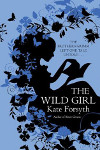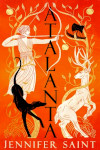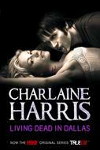Kate Forsyth – The Wild Girl
Posted 7th August 2013
Category: Reviews Genres: 2010s, Angst, Domestic, Historical, Political, Romance, Social
8 Comments

If they were the Brothers Grimm, then these were the Sisters Wild, and one in particular played a big role in the collecting of stories.
Publisher: Allison & Busby
Pages: 475
Type: Fiction
Age: Adult
ISBN: 978-0-7490-1328-8
First Published: March 2013
Date Reviewed: 26th July 2013
Rating: 5/5
Dortchen Wild fell in love with Wilhelm Grimm at first sight. Her love continues to grow over the years but the age gap between them and the difference in societal standing means that Dortchen already knows there’s no chance her father would allow her to marry him, he barely lets them socialise. Wilhelm and his brother are collecting folk tales for a book they wish to publish and Dortchen becomes one of their sources, but the Grimm family have only the faintest idea of what goes on behind the doors of the Wilds’ house, and about the anger of the father.
The Wild Girl is a necessarily slow but by no means quiet novel that takes as its premise the girl history forgot, her family, society at the time, and the possibilities brought forth by Forsyth’s research. In a similar vein but with major differences to Forsyth’s previous book, Bitter Greens, the story brings the concept of the dark fairy tale into reality whilst balancing that hard truth throughout on the other hand.
Forsyth has chosen as her subject the foundations of her previous story. Albeit that she told Bitter Greens, a retelling of Rapunzel, from the view of one of its earlier writers, it is widely known as the work of the Brothers Grimm and therefore The Wild Girl is a return home of sorts. The facts known about Dortchen can be found in Forsyth’s source information at the back of the book; she has followed the facts where possible and elaborated on the grey areas.
One of these grey areas is the possibility of violence, which is important to mention because of the nature of it. The domestic abuse is suggested very early in the book and it should be noted that this is in no way a story for young readers. Forsyth takes the route currently popular in retellings, showing the dark side of fairy tales, exposing their true routes, and this runs parallel to her interpretation of Dortchen’s family life. It is interesting the way Forsyth came to her conclusion of how Herr Wild acted, at least for the purposes of her book, and at the end of the book Forsyth makes a compelling case for what she has written whilst never saying that it is definite. For it is not, but her source information does support her tale.
Here we come to Dortchen’s later meetings with Wilhelm, and this bares responding to because it can be frustrating for the reader but is surely realistic of the situation. In writing what she has, Forsyth has turned the notion of ‘filler’ on its head because in any other context, Dortchen’s conduct would be considered dull. But Forsyth uses the time to remark upon the affects of violence and abuse on a person’s later view of relationships and shows that a fairytale ending is impossible, if not forever then at least for a very long time. And albeit that the backdrop is the 1800s and people respond, react, and keep quiet as they surely would have then, Forsyth’s commentary is relevant to our present day, too.
The book is steeped in French Revolutionary history, and here you get the point of view of the Germans. Forsyth brings the needed opinion of the common person into the picture and provides a lot of factual detail about the movement of the armies and the battles fought. You see the direct affects both the initial change and later reversal of changes had on the population of a country where religion was still important, society unequal, and the poor enslaved. Forsyth offers up the interesting detail of how Napoleon’s rules could be hated until society got used to them at which point, when the reversal happened, a lot of people saw the good in the Revolutionary rules – if not when it came to views about women. There is enough here to supplement the knowledge of anyone with an interest in the Revolution and how it affected Europe, with the foresight that only the inconsequential, such as individual one-scene characters, are fictional.
So The Wild Girl is a fairy tale of a different sort. The main plot isn’t based in fiction and there are no fairy godmothers, princes, or witches with towers. It is in the writing itself that the book makes a claim to the label and in the inclusion of the many stories told to the Grimm brothers. These inclusions are as much a source of knowledge as are the accounts of the wars. There is a very slight paranormal element used but it is more about the ideas Dortchen has, because it is never suggested that this paranormal element is real or that it has a true affect on the story. It is more a case of convenience for Dortchen’s imagination and to help her mental state (though in no way a convenience in terms of Forsyth wanting to hurry on with the story).
After all this, then, what about the characters? Dortchen is strong but understandably this nature is left in tatters as the story continues. The other Wild daughters are well-rounded and made easy to tell apart by Forsyth’s instant usage of stereotypes (stereotypes of a fashion used in fairy tales). The Grimm family, too, are developed, and Wilhelm is a worthy hero, all things considered. He was never going to be the knight in shining armour as real life rarely works that way, but instead he is believable and at times a fine example to use when Forsyth is discussing affects and reactions. Herr Wild shows the contradictions of religion and reality, and in Frau Wild you have at once the typical melodramatic mother you might expect from such a story, as well as a well-written example of both the hindsight of the present and the lack of knowledge – paired with discrimination – of the time. This is a hard book to read, there is no doubt about that, but it is both entertaining in its way and poignant and necessary in another.
The Wild Girl is about the women patriarchal history forgot, of the people who were crucial to the Grimms’ success. It is important, it is informative, and it is a compelling read. And it reminds you that there is always darkness to the sweetest tale and that even the hardest of times can include a little magic.
I received this book for review from Allison & Busby for Historical Fiction Virtual Author Tours.
Related Books
August 7, 2013, 11:27 am
I’m reading this at the moment and I find myself slowing down my reading pace as I don’t want it to end.
August 7, 2013, 7:28 pm
I love the sound of this one–not to mention the cover. I haven’t read anything by Kate Forsyth before, but I can see I really must.
August 8, 2013, 1:55 am
Thank you so much for your beautiful & thoughtful review – I am so glad you loved my Wild Girl :)
August 8, 2013, 8:04 pm
I’ll be starting to read this in the next few days for the blog tour, so will come back and read your review later to see if we have the same thoughts on it. I’m pleased to see you’ve given it 5/5 – I hope I’ll enjoy it as much as you did!
vicki (skiourophile / bibliolathas)
August 9, 2013, 10:54 am
Ever since I heard her speak at Sydney Writers Festival in May, I’ve been keen to read her work — I think perhaps I’ll start with Bitter Greens. (And I’ve enjoyed reading her piece today on your blog too.)
August 10, 2013, 11:23 am
I love this review. You are so right that the novel picks up on the women patriarchal history forgot. I never would have known that there was such a strong female behind the Grimm brothers. Very pleased I read it and I will be trying Bitter Greens next!
8 Comments
Comments closed
























August 7, 2013, 10:13 am
The more I hear about Kate Forsyth’s books the more I think I need to be reading them. Wild Girl sounds like another interesting read.